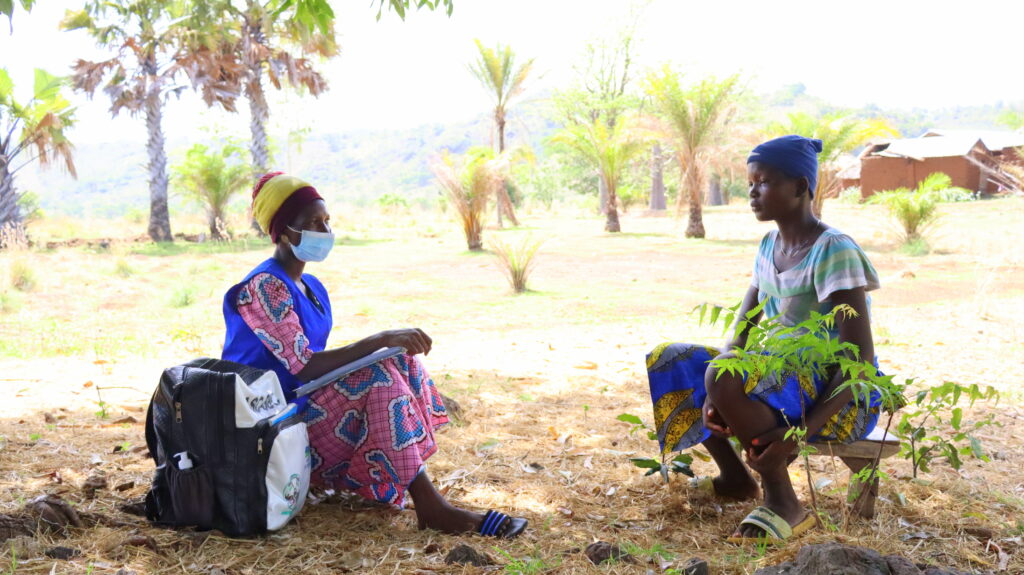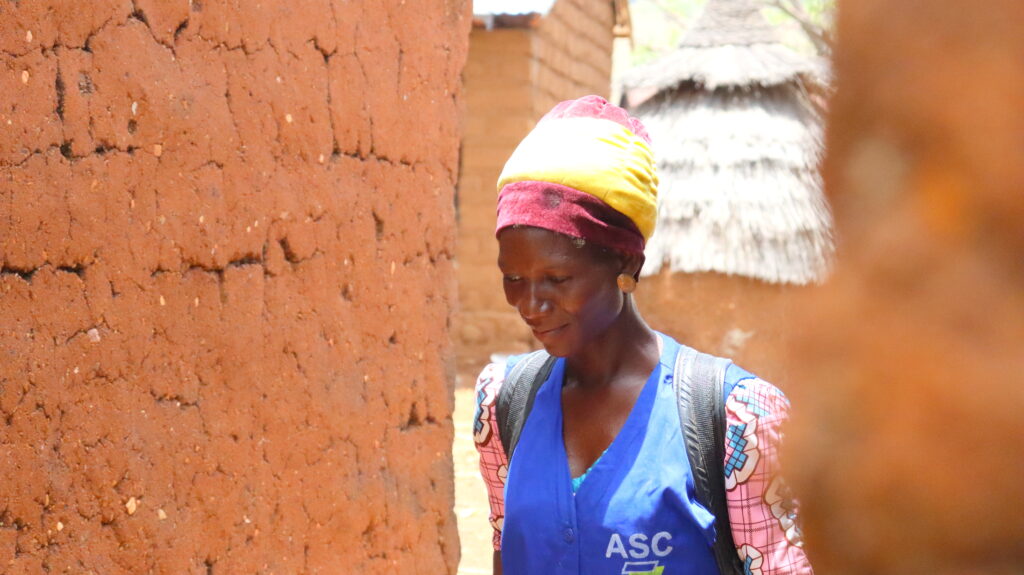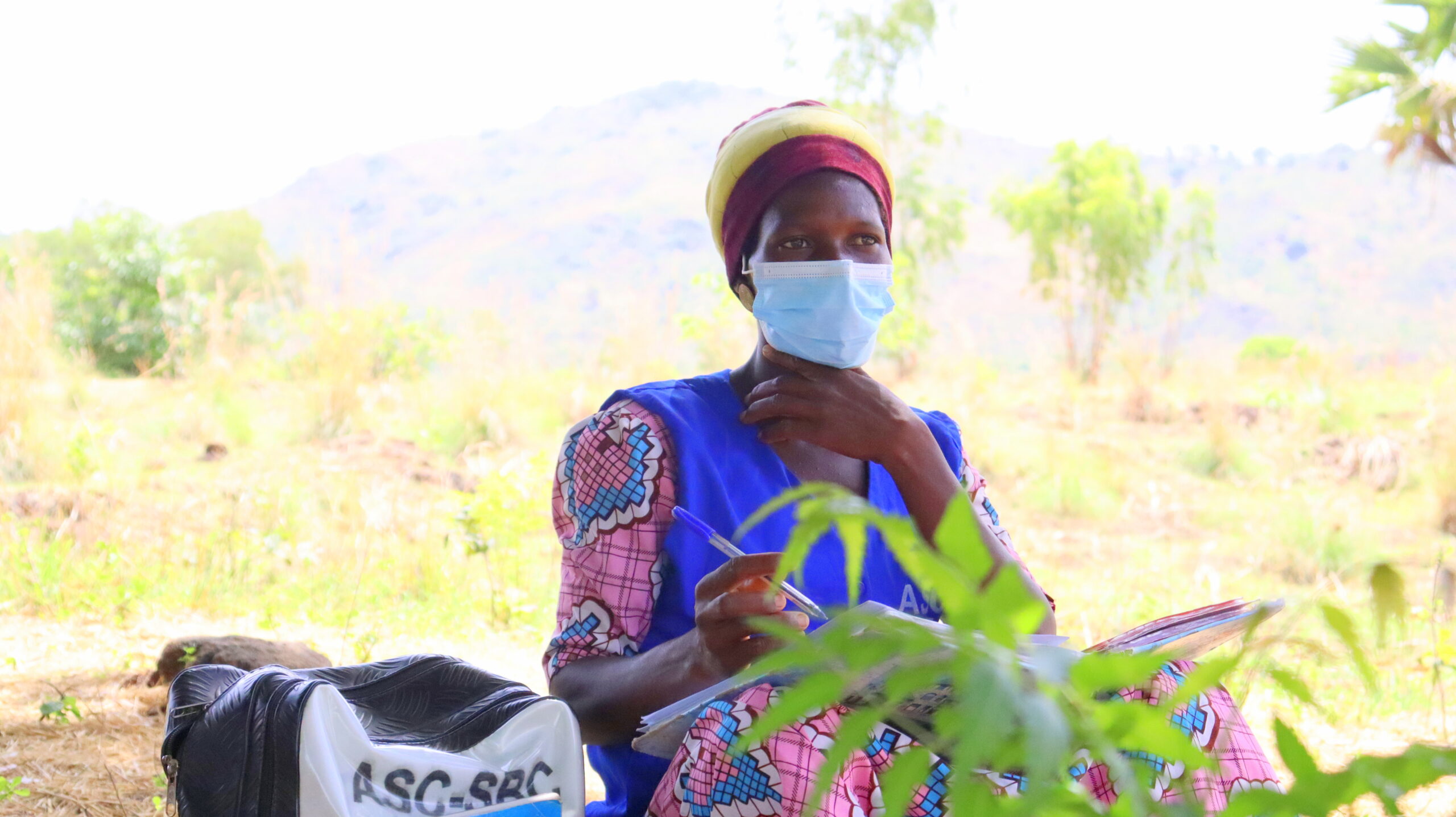In Togo, 1 in 15 children dies before their 5th birthday. Many women, especially in rural areas, have been helplessly confronted with this tragedy one or more times in their lives. Like many women in her community, Djilalo Emiline Badjona, an Integrate Health-supported Community Health Worker in Binah District, has not been spared this unfortunate event. As Emiline told us, her motivation to become a Community Health Worker comes from a deeper place and aligns with Integrate Health’s core belief that no child should die from preventable diseases, no matter where they live.
Emiline is from Farendè, a small village in the Binah district. This month is the start of the rainy season, and the landscape has put on its green coat. On a road inFarendè, through the open spaces of a cleared field, Emiline takes big steps forward walking with a determined pace towards a house surrounded by trees. . She wears a blue vest with the words “Community Health Worker” on it, over an African-print dress. On her back, she carries a white and black backpack with a bottle of hand sanitizer sticking out of the side pocket. This is Emiline’s morning routine; she makes the rounds of the homes in Fraendè to provide care for her neighbors.

There are many reasons why Emiline gets up every morning to visit and care for her neighbors. A few years ago, Emiline lost two of her children under the age of two due to the lack of primary healthcare in her community. When her children were sick, the only options she had were to visit a traditional healer, or stay at home and do nothing. Many of her friends in Farendè experienced similar tragedies.
But today, things have changed in Farendè, and Emiline is happy to participate in the Integrated Primary Care Program as a Community Health Worker to save the lives of children and women in her community.
The program gives hope to Emiline and her fellow community members because they now have healthcare services when they need it, where they are. as the Integrated Primary Care Program has four components:
- Community Health Workers: Trained, equipped, supervised, salaried, and predominantly women, Community Health Workers conduct proactive case-finding and provide home-based care to ensure population-level coverage.
- Clinical-capacity building: Trained in supportive supervision, an Integrate Health Clinical Mentor provides peer-to-peer coaching to nurses and midwives in public sector clinics to ensure competent healthcare providers and effective care.
- Supply chain and infrastructure: Improved basic infrastructure and effective supply chain management transform public sector clinics into buildings that match the quality of healthcare received inside.
- User-fee removal: Subsidized point-of-care fees for pregnant women and children under five eliminate financial barriers for patients.

Through this approach, communities in the Binah district have healthcare delivered at home and at the health center whenever they need it, free of charge. And with committed Community Health Workers like Emiline, the vision of providing high-quality primary healthcare to all is becoming a reality. Emiline couldn’t be prouder to be a part of this work, and as she says, her job gives her as much as she gives it every day. She says,
“As a Community Health Worker, I am respected. I have become closer to the people. I go to the houses and see the difficulties that people are going through. Before, we didn’t know what our neighbors were going through.”

